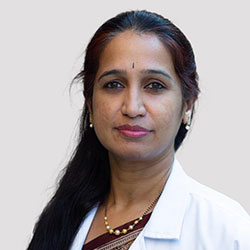The decline in fertility with age is an undeniable biological reality. By the time a woman reaches 35,her chances of conceiving naturally begin to decrease significantly. Here are the key factors drivingthis decline:
- Egg Quality and Quantity: A woman is born with a finite number of eggs, which diminish
in both quality and quantity as she ages. By her mid-30s, this natural depletion often leads to
lower chances of conception and higher risks of miscarriage. - Chromosomal Abnormalities: Aging eggs are more prone to chromosomal errors,
increasing the likelihood of conditions such as Down syndrome due to improper division
during fertilization. - Hormonal Shifts: Hormonal changes can disrupt ovulation, causing irregular cycles, missed
ovulation, or difficulties in sustaining a pregnancy. - Pregnancy Risks: Older mothers are at a higher risk for complications like gestational
diabetes, preeclampsia, and exacerbated age-related conditions such as fibroids or
endometriosis, which can impede conception or increase risks during pregnancy.
The Emotional Landscape of Delayed Motherhood
For many women over 35, the path to motherhood can feel like a race against time. Anxiety aboutthe “biological clock” often creates a sense of urgency, overshadowing the joy of starting a family. Fertility struggles can strain relationships, heightening stress and feelings of inadequacy.Moreover, societal expectations—which often link motherhood to youth—add to the emotionalburden. Women are left navigating a delicate balance between personal aspirations and the pressureto conform to traditional timelines. Open communication, emotional support, and reframing thesenarratives are essential in helping women find peace and clarity during this journey.
The Silver Lining: Modern Medicine and Fertility Solutions
The challenges of conceiving after 35 are real, but so are the opportunities. Advances in reproductive medicine have opened new doors for women who wish to have children later in life:
- Assisted Reproductive Technologies (ART): Techniques like in vitro fertilization (IVF) and egg freezing have revolutionized fertility care. IVF enables fertilization outside the body, offering a path to parenthood even when natural conception proves challenging. Egg freezing allows women to preserve their eggs at a younger age, safeguarding their fertility for the future.
- Donor Eggs: For those with diminished egg quality, donor eggs from younger women provide a viable and effective option, bypassing the challenges associated with aging eggs.
- Genetic Testing: Preimplantation genetic testing (PGT) screens embryos for chromosomal abnormalities before implantation, improving IVF success rates and reducing the risk of genetic conditions.
- Proactive Fertility Checks: Ovarian reserve testing and other diagnostic tools empower women to plan their families with greater precision, ensuring that they are informed about their reproductive health.
- Enhanced Maternal Care: Advances in prenatal care and maternal health monitoring have significantly improved outcomes for older mothers, making pregnancy safer and more manageable.
Beyond Medicine: Lifestyle and Fertility
- Healthy Diet: A nutrient-rich diet supports hormonal balance and egg quality. Foods high in antioxidants, folic acid, and omega-3 fatty acids are particularly beneficial.
- Regular Exercise: Moderate physical activity improves blood circulation, reduces stress, and supports overall well-being.
- Stress Management: High stress levels can disrupt hormonal function. Practices such as yoga, meditation, or mindfulness can enhance emotional resilience and improve fertility
outcomes. - Avoiding Harmful Habits: Smoking, excessive alcohol consumption, and exposure to environmental toxins can accelerate egg loss and negatively impact reproductive health.
Embracing Empowerment: Knowledge is Key
Fertility after 35 comes with its share of hurdles, but it’s also a time when women can take control oftheir reproductive health like never before. By staying informed, prioritizing health, and seekingguidance from fertility specialists, women can make empowered decisions about their journey tomotherhood.

